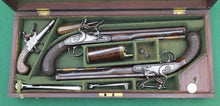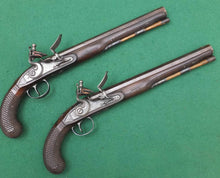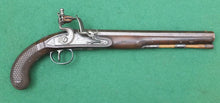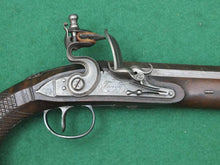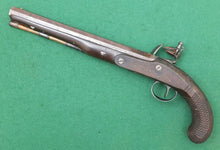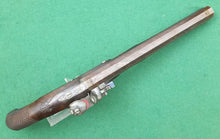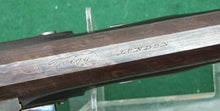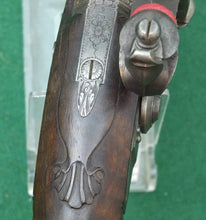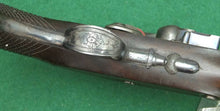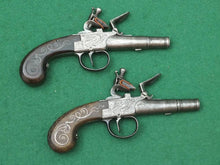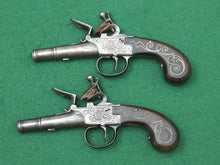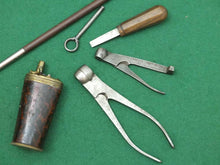
A Very Fine and rare Cased Set of Flintlock Duelling Pistols by Twigg with a Pair of Companion Pocket Pistols. Duellers
Missed out on this item? Click to view all current Antique Pistols & Revolvers Free UK delivery on all items
15 ½” overall, 10” slightly swamped, twist octagonal sighted 25 bore barrels each signed along the top flat ‘Twigg London’ and engraved with a line of beadwork behind the back-sight, border engraved tangs each decorated with foliage, border engraved flat bevelled locks each with second form of signature and stepped tail. Figured full stocks each carved in relief with a shell behind the barrel tang, chequered rounded flat-sided butts with a dot in the centre of each diamond and carved with characteristic step behind the lock and side-flat on each side, steel trigger guards each with acorn finial and decorated with a flowerhead on the border engraved bow, turned ramrod-pipes, horn-tipped ramrods, one with iron worm. Pocket pistols 6 ½” overall with 1 ½” turn-off rifled 120 bore cannon barrels, actions engraved with a trophy on each side and inscribed 'London' on a scroll, blued sliding trigger guard safety catches which lock down the frizzens each decorated with foliage on the bow, figured flat-sided butts inlaid with silver wire scrollwork. In their original lined and fitted mahogany case with some accessories including a leather covered three-way powder-flask stained in imitation of tortoiseshell, matching bullet moulds in 25 and 120 bore, turn screw and loading rod. The exterior of the lid with brass carrying handle of Chippendale form Circa 1775-80
Duellers in very good, re-finished condition, crisp actions. Pocket pistols in good condition with minor losses to silver wire. Accessories all original to set. Original case with split to front edge of lid, hooks old replacements.
Provenance: W. Keith Neal Collection, C26 Christie's London, Fine Antique Firearms from the W. Keith Neal Collection, 8 November 1995, lot 317
John Fox Twigg was born in Grantham, Lincolnshire in 1732. He is recorded at various addresses in London between 1755 and the year of his death in 1790. Durs Egg worked for him on his arrival in London in 1772 and John Manton served as his foreman. He is considered to be one of founding fathers of the English gun making trade












